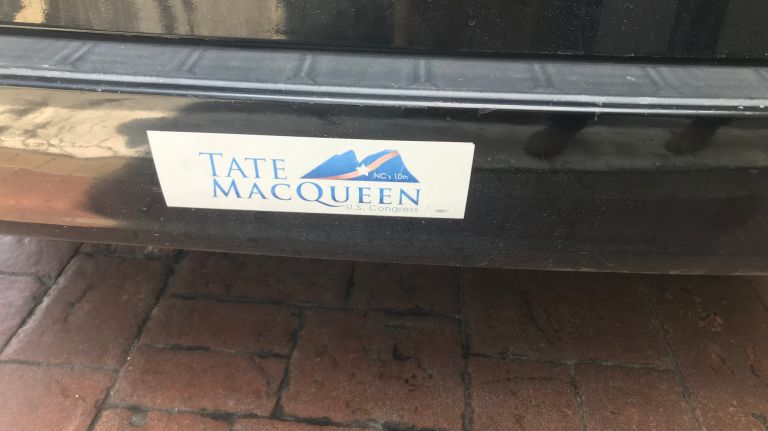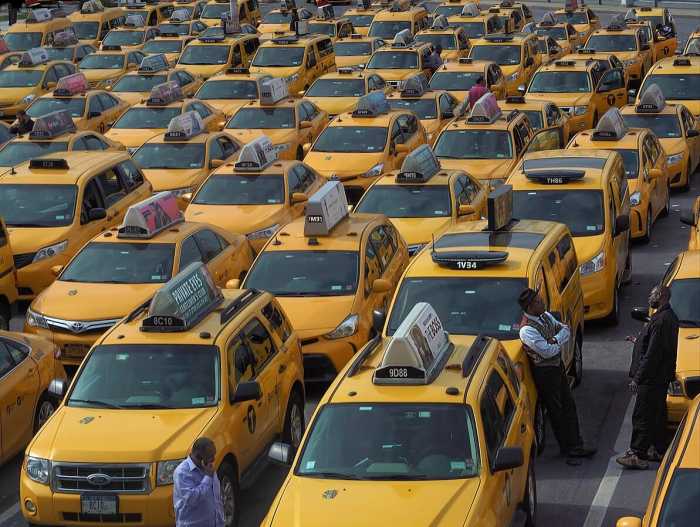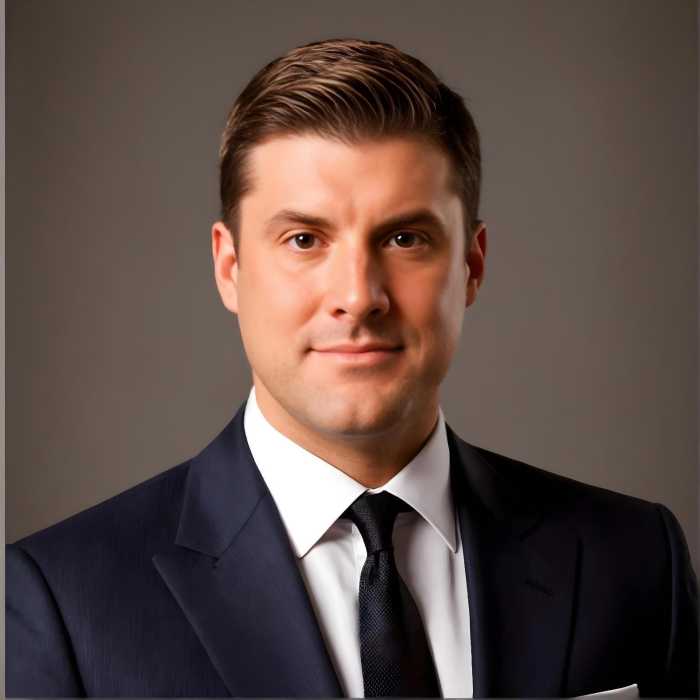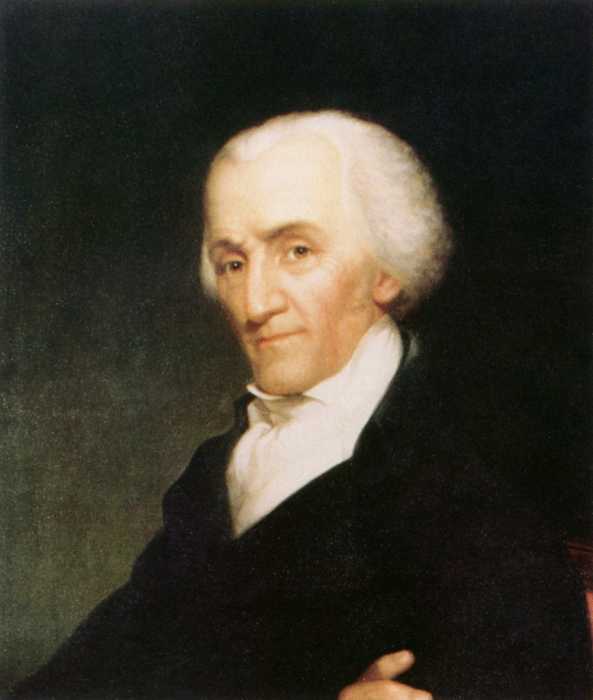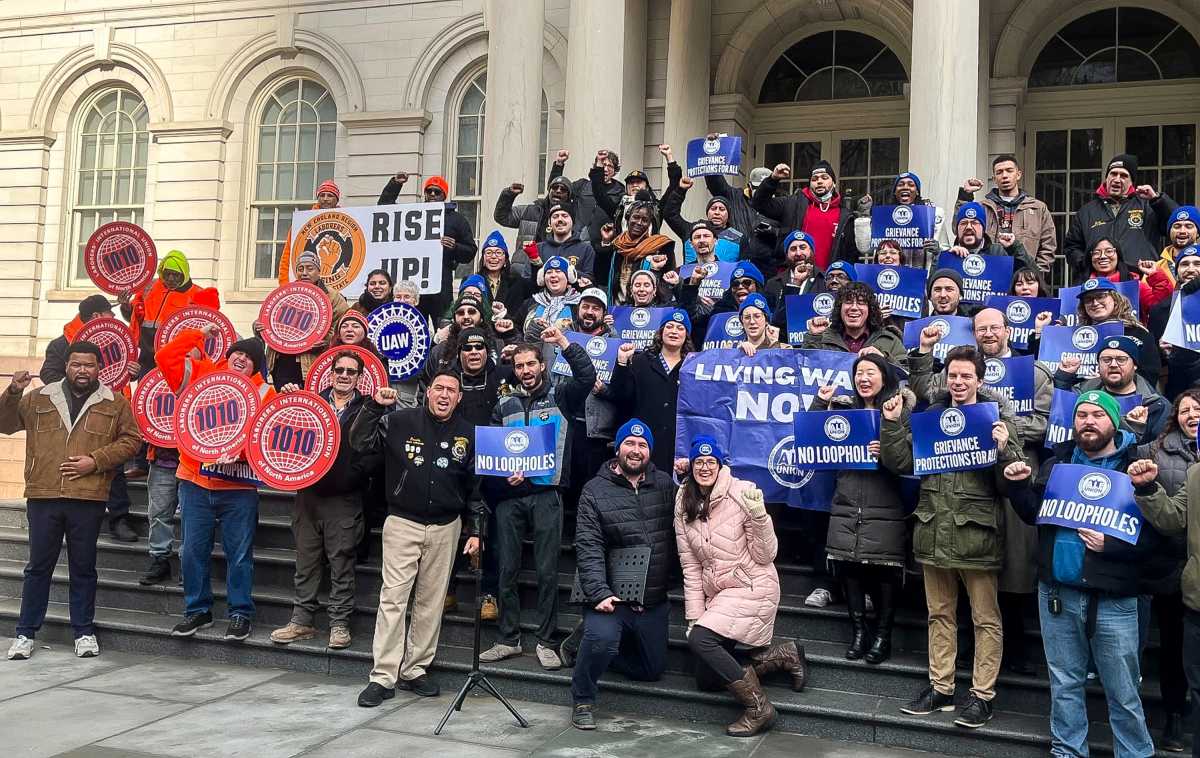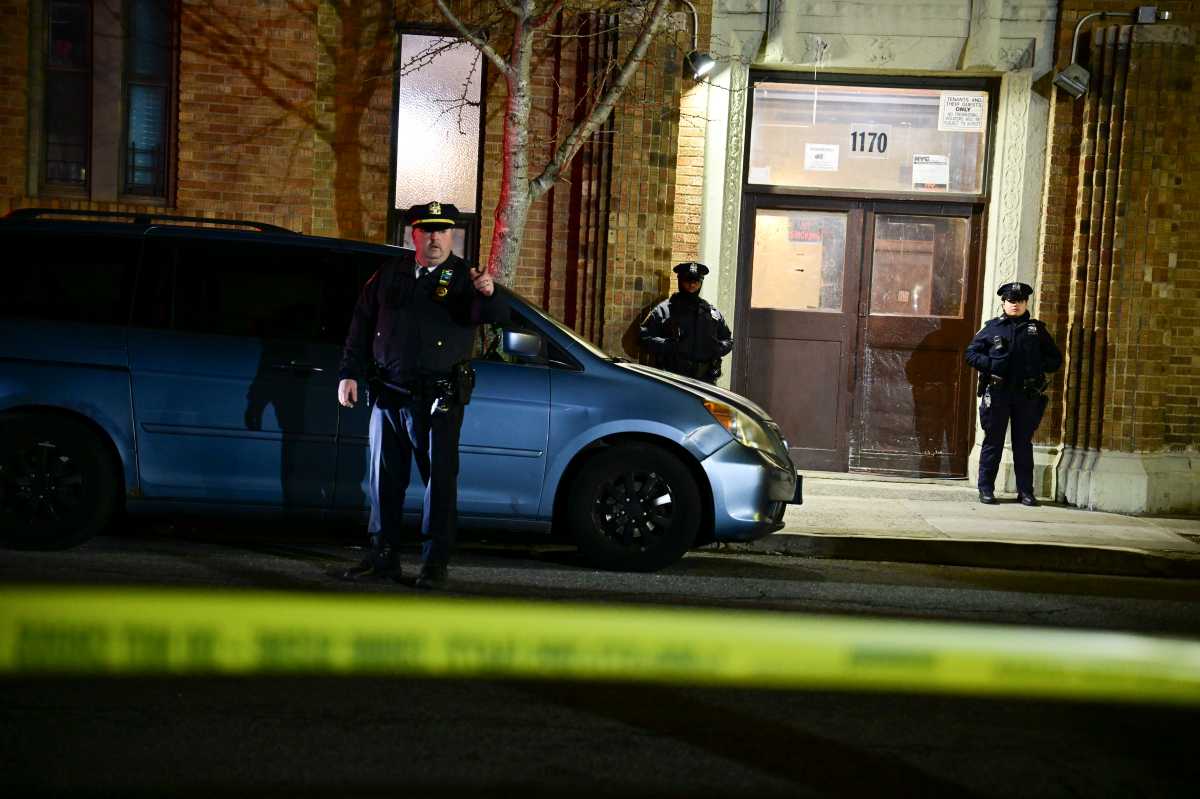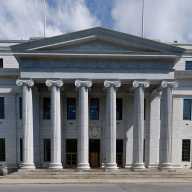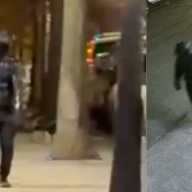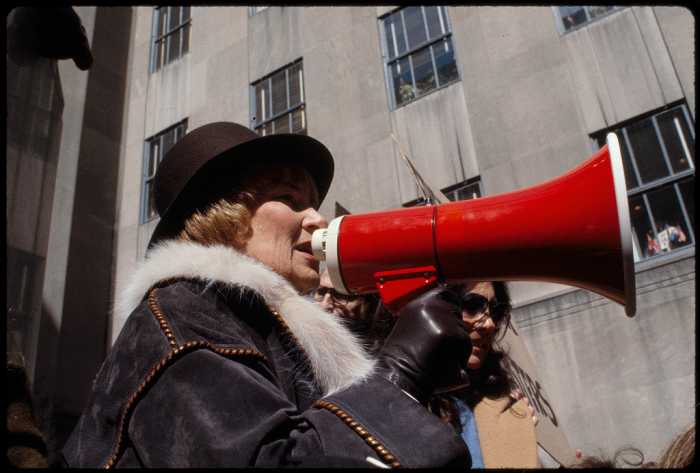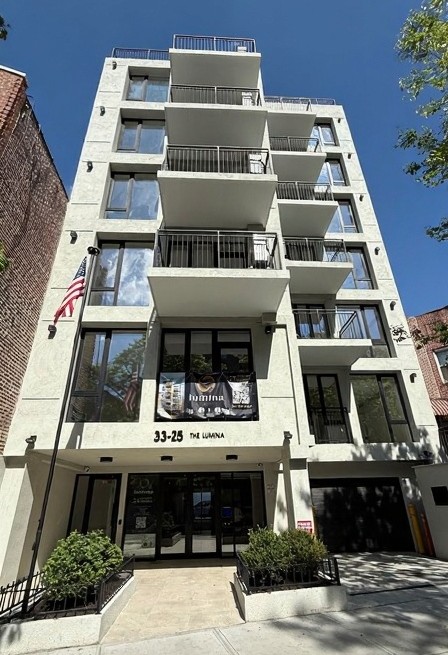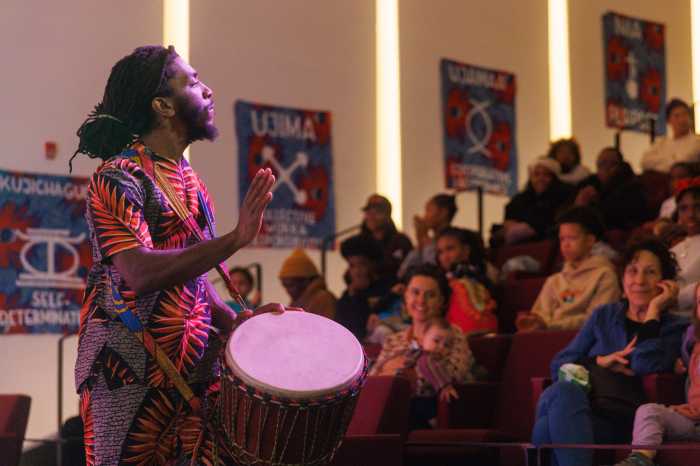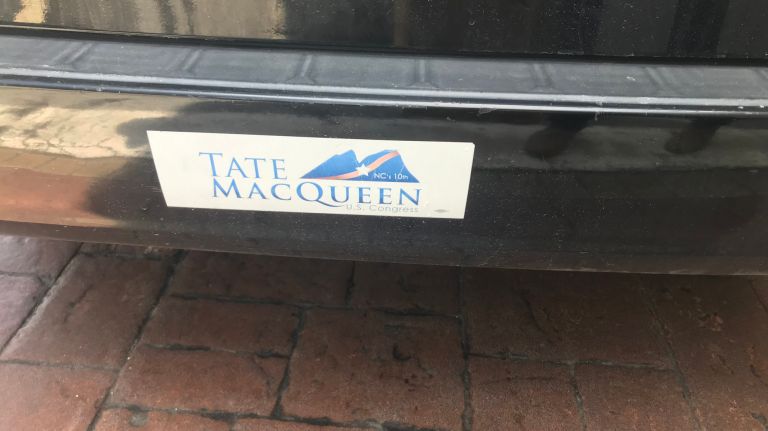
My Uber ride to the airport in Asheville, North Carolina, on Sunday took a turn when the driver asked what I did for a living.
It had been a nice ride. The driver went the scenic route on the Blue Ridge Parkway, which he noted dated to FDR’s presidency. We talked about the similar struggles with homelessness and opioids in both Asheville and New York City. The way Asheville with its hiking and breweries was becoming a place people visited, as I had, for quick trips.
We got to the airport as he popped the question, and I said I wrote for a newspaper, often about politics, and made some joke like, you know how complicated politics is these days.
He laughed and said he knew and then got out of the car and beckoned me to follow, pointed at his car’s bumper sticker that said “Tate MacQueen, U.S. Congress.”
“That’s me,” he said. “I’m Tate MacQueen.”
Turns out I happened to get a ride from the 2014 Democratic candidate in North Carolina’s 10th Congressional District.
Candidates come and go, incumbents win or lose, politicians get their names on housing developments or law offices or fade back into the democratic populace. But sometimes, even in the fading, they have lessons for the people who come next, in 2020 or otherwise.
MacQueen, who also teaches high school American history and peppers his conversation with quotes from the likes of LBJ and Abraham Maslow, says he thought the 2014 run would “pay dividends” in his classroom even if he lost. He could model for the students what it means to be an advocate for your community.
MacQueen, 52, says he was advocating about an environmental issue in Asheville, where land once owned by an electronic component manufacturer became a superfund site, around which he said families have had concerns about cancer rates.
Feeling that the GOP incumbent wasn’t sufficiently dealing with the issue, he decided to run, buying a schoolbus that was his mobile headquarters, filling up on biodiesel fuel. His why-not-try-it pitch to donors was to consider monetarily supporting neither him nor his opponent, sending the money instead to the local food bank. (He ended up receiving $82,214.59 in total contributions while the Republican got $1,746,285.66.)
It was “one of those deep-breath moments” to see his name in the voting booth, he said. In the end, his now-eight-term opponent in the GOP-majority district once again coasted to victory.
What changed? He thought he at least had kept attention on the ongoing local environmental issue, serious enough that over the course of the campaign installation of municipal water supply lines began near the site, according to the Environmental Protection Agency’s superfund website, which says its “top priority” there is to “eliminate potential human exposure to [trichloroethene] via drinking water and air inhalation pathways.”
But what’s happened to the EPA since then is “dizzyingly disconcerting,” says MacQueen, with the administration pulling back regulation of the kinds of companies that tend to necessitate the kind of cleanups his community is living through.
That’s one thing that needs changing in the political sphere, he says, though the candidate won’t be him anytime soon. Also, he changed his voter registration to unaffiliated after the run as he went back to neutral public school teaching.
But his advice to the candidates that do run is to “recalibrate how they shake hands,” meaning how and who they communicate with, which should include people of different beliefs and different bumper stickers on their cars. If you “navigate quickly around the wedge issues” of abortion, guns, religion, MacQueen thinks, you might be able to say, agree to disagree on those issues, but what about your local school?
This is reminiscent of the debate about strategy playing out on the national, presidential stage, with Democrats broadly arguing whether moderation or left-most progressivism is better. Maybe you’re tired of this dichotomy already given that the presidential election is over a year away and pitches will be recalibrated state by state and primary vs. general election, anyway.
But on the district level, the “shake hands” philosophy makes sense to MacQueen given all the real problems even beyond pollution. There’s all the Confederate flags MacQueen sees while he’s driving, the tough conversations about politics and history he has with his students. The difficulty some people have finding solid work, such that he no longer relies on giving homework since he’s seen too many students working long necessary low-paid hours after class. And he himself has supplemented his teaching salary since 2017, over the summer and around the school schedule, driving thousands of miles for Uber around the district he once ran to represent.



